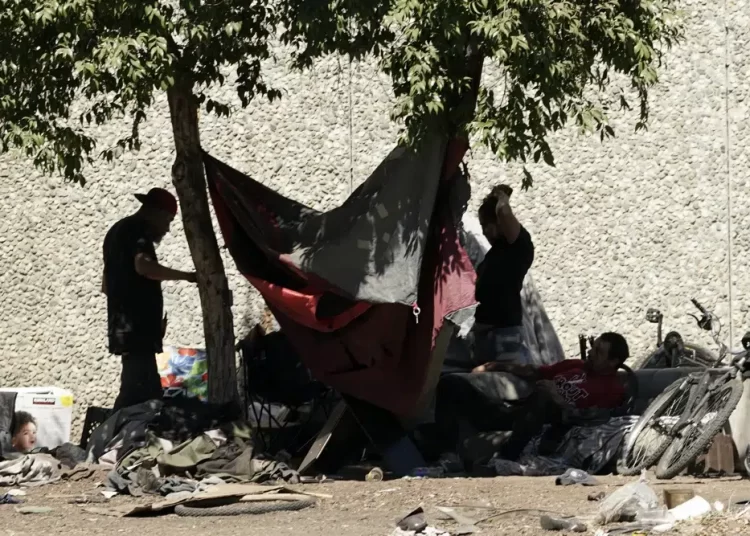SAN FRANCISCO — Homeless people in California are already a vulnerable group, often struggling with poor health, trauma and deep poverty before they lose their housing, according to a new study on adult homelessness, according to AP.
The study released on Tuesday by the University of California, San Francisco attempts to capture a comprehensive picture of how people become homeless in California, and what impeded their efforts at finding permanent housing. The representative survey of nearly 3,200 homeless people found that when they lost housing, their median household income was $960 a month, and for renters on leases it was $1,400 a month, of which on average half went to rent.
Homelessness is a national crisis, and all too pervasive in California, where an estimated 171,000 people — or 30 per cent of all homeless people in the US — are homeless. Political leaders are divided over how to address the crisis, with some, including Democratic Gov. Gavin Newsom, favoring tent encampment sweeps and a tough-love approach toward those with mental health and addiction issues.
It it not groundbreaking news that the state’s exorbitant housing costs are a major driver behind homelessness, but researchers at the UCSF’s Benioff Homelessness and Housing Initiative hope that the study will strengthen public support for policies that focus on offering housing and emergency rental assistance — rather than policies emphasising punishment or stigma.
“People are homeless because their rent is too high. And their options are too few. And they have no cushion,” said Dr. Margot Kushel, initiative director and lead investigator. “And it really makes you wonder how different things would look if we could solve that underlying problem.”
Kushel’s team surveyed nearly 3,200 adults around California, and followed up to conduct in-depth interviews with 365 people, between October 2021 and November 2022.
The study found that Black people made up 26 per cent of the homeless population in a state where they are only 6 per cent of the general population. About 90 per cent of participants were living in California when they became homeless. Half reported an inability to work due to age, health or disability. The median length of homelessness was a little under two years.
More than a third of adults surveyed met the criteria for chronic homelessness, meaning they had a disabling condition and were homeless for at least 1 year — or were homeless four times in the previous three years totaling more than 12 months.






Discussion about this post